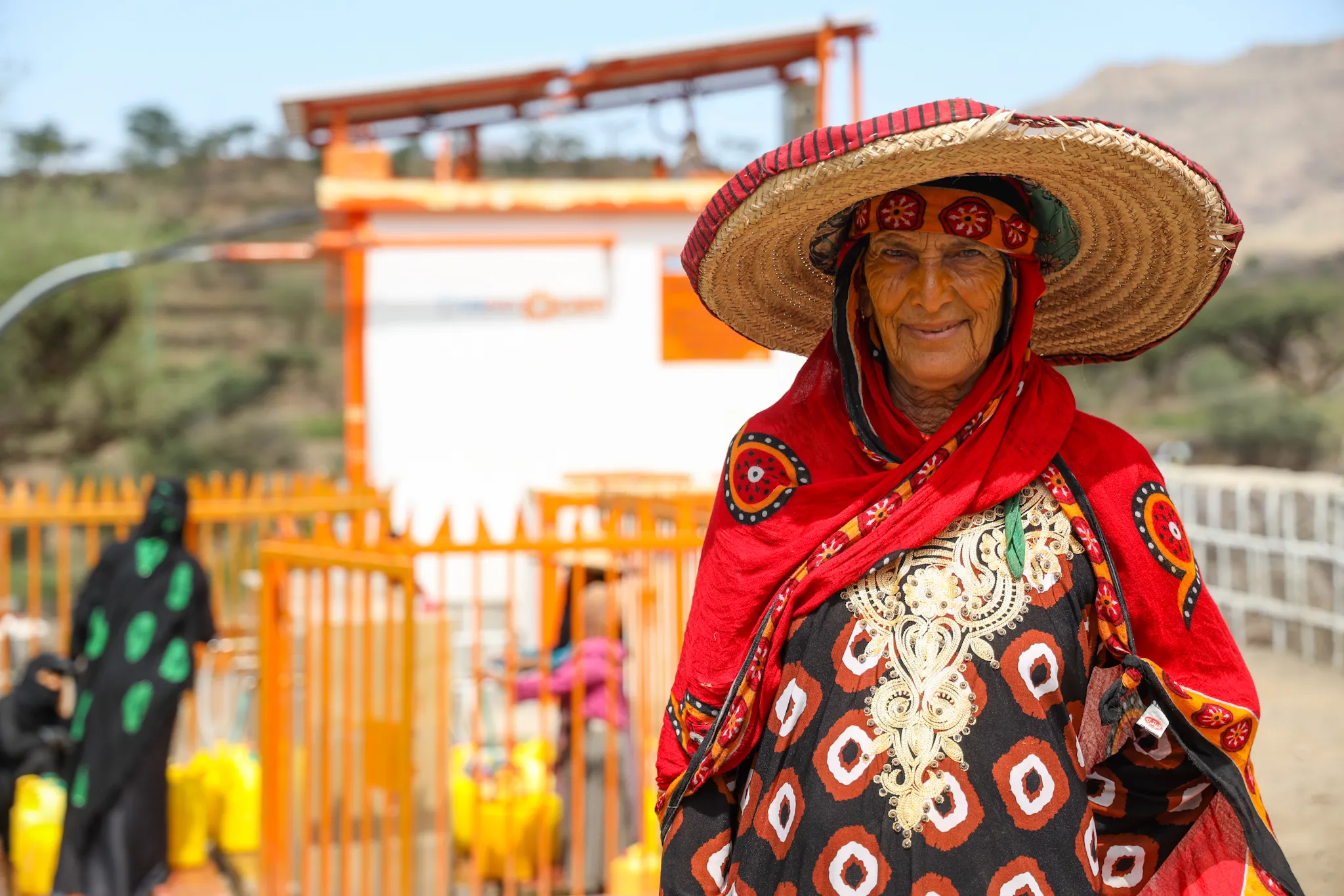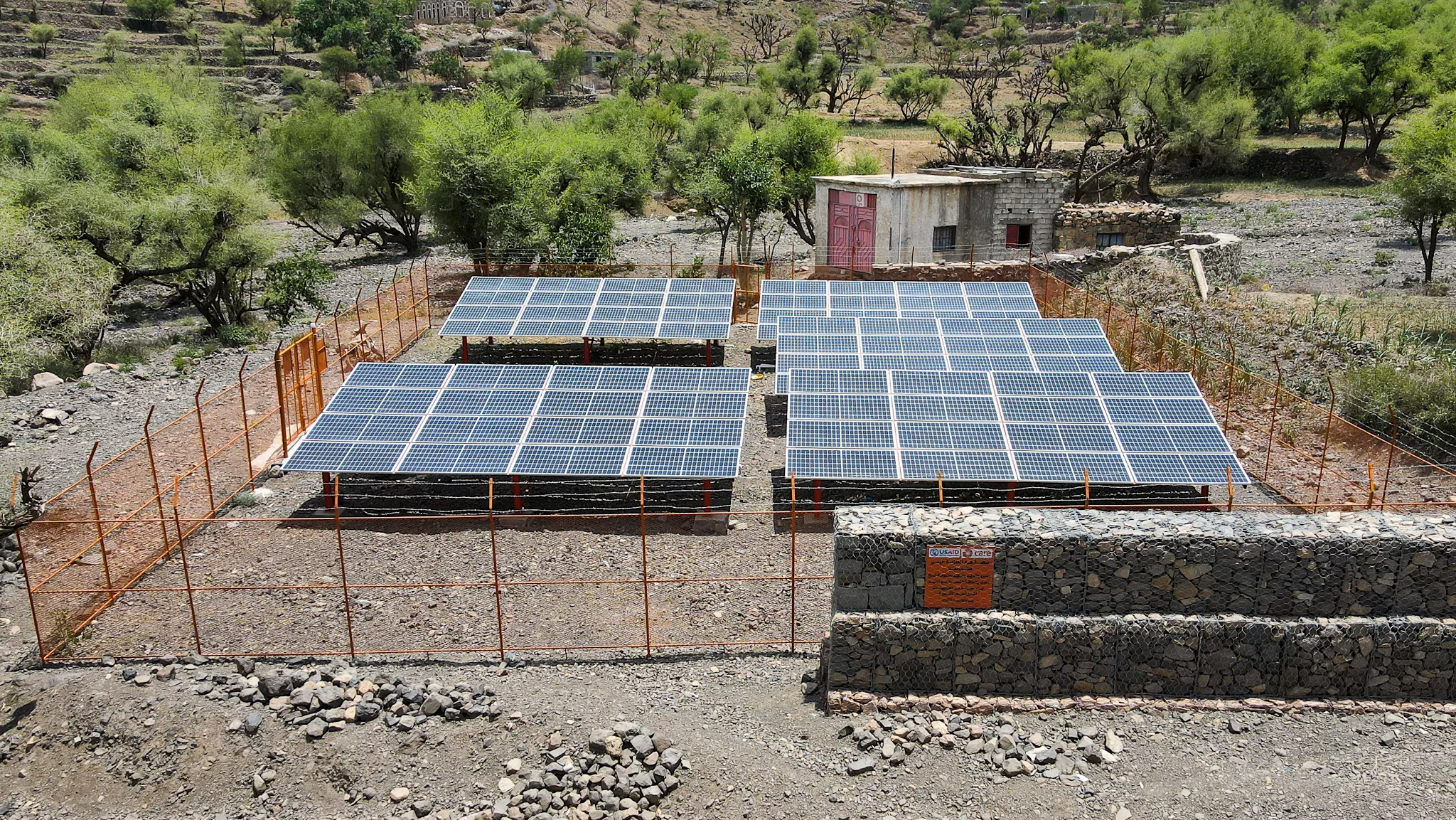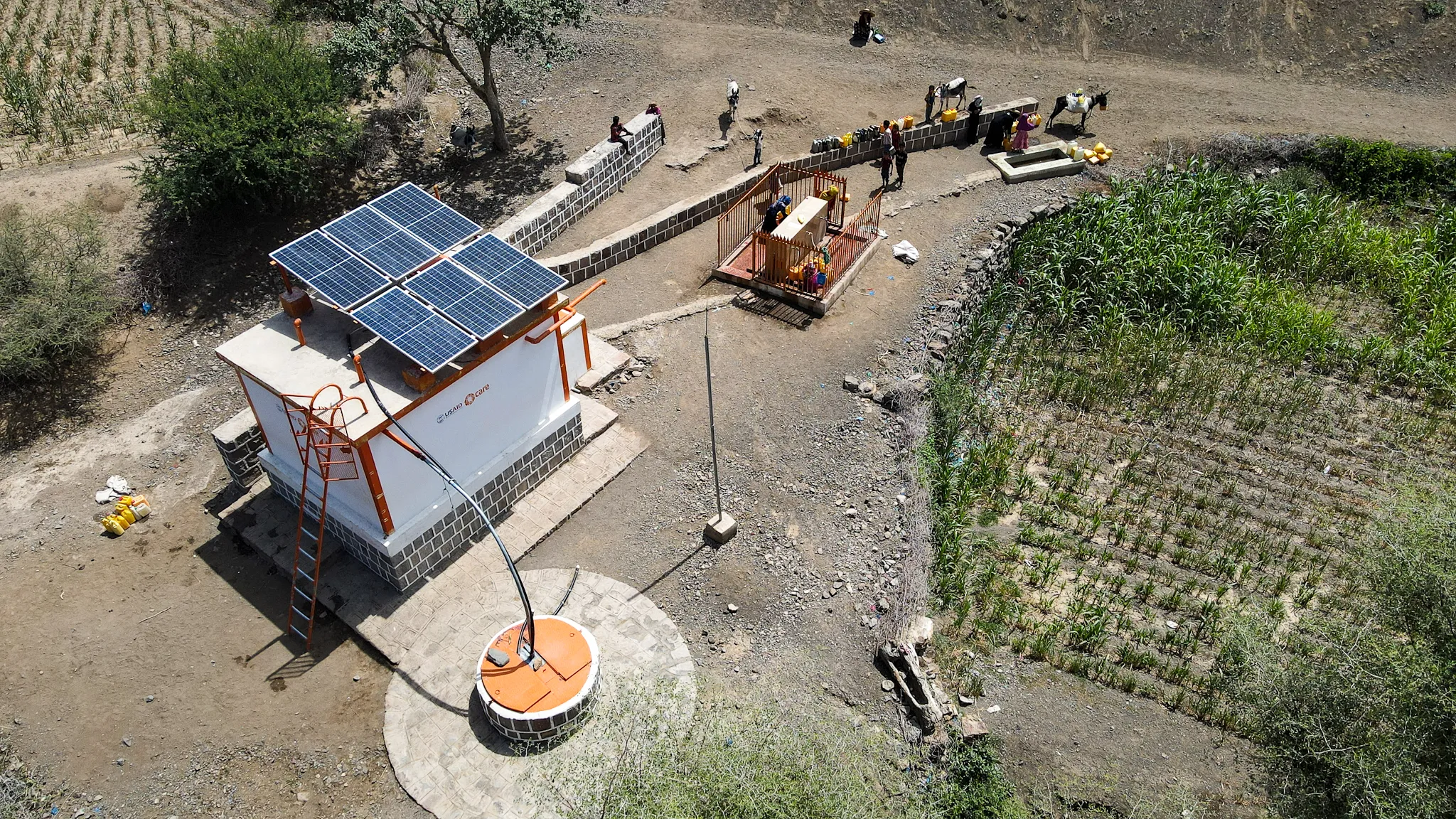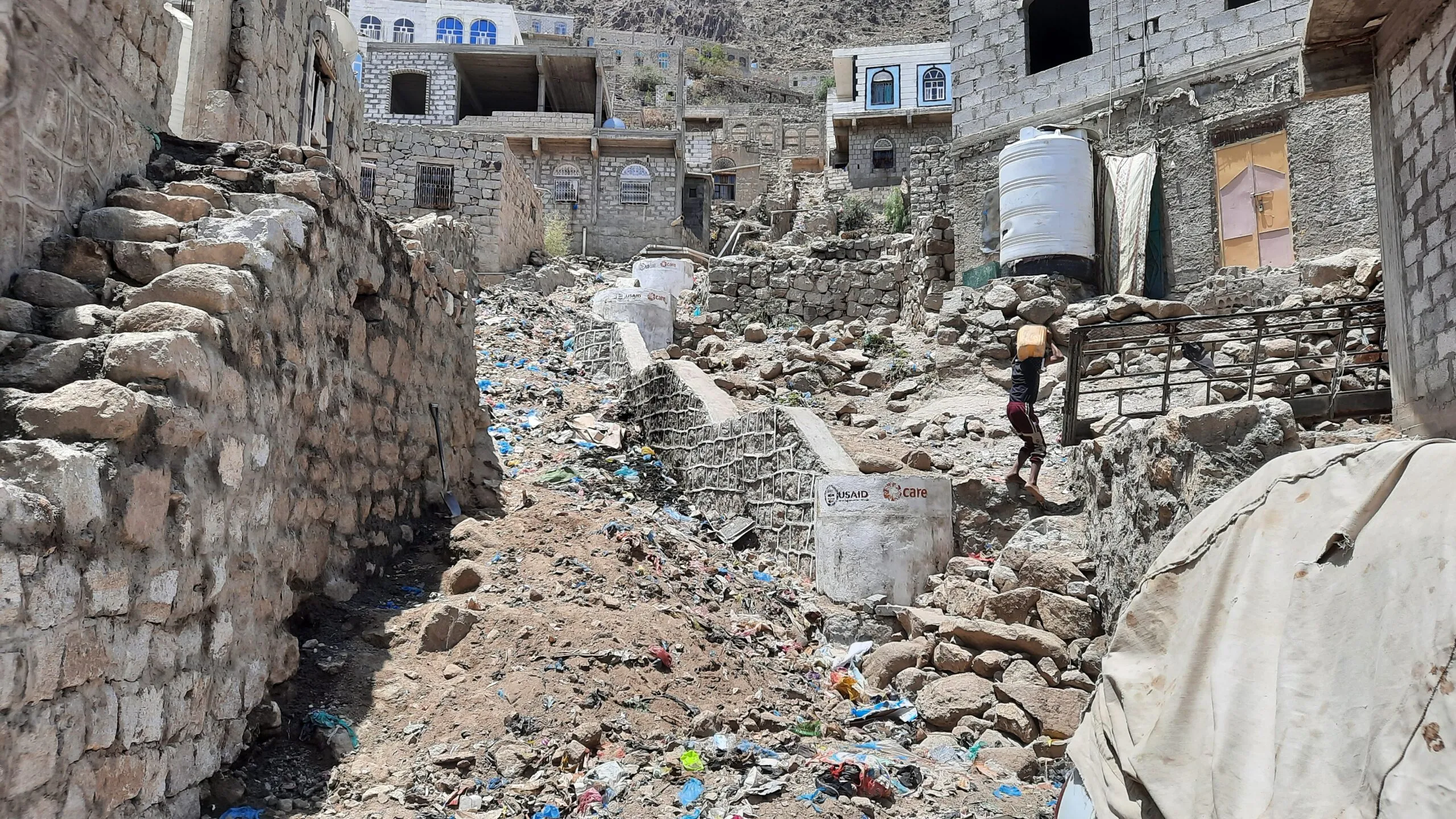Amna is not alone.
Since the project’s launching in 2019 with USAID support, CARE has rehabilitated 18 water and eight sewage systems across five districts under Taiz, one of the 14 governorates where CARE works. And so now over 135,000 people are benefitting from this project.
For decades, the region has faced a dwindling water supply, and challenges from the area’s remarkably diverse geography — with a hot, humid, and arid climate on one side and heavy rainfall and extreme cold on the other — as well as the ongoing conflict in the country.
Before the project began, the Taiz sewage system would often overflow. The water supply was scarce, and many of the water pumps did not function. Women had to walk for hours to fetch water, defying the harsh and treacherous hilly terrain. Many children were forced to drop out of school to help their families collect water for drinking and household chores.
“I walked 2 kilometers every day to fill a 20-liter jerrycan and managed everything with that. I had to feed our cow as well. Many women often spent all day just to fill a few jerrycans and bring them home.” says Amna.
Things started to change when the local government authority approached CARE for support in 2019.




